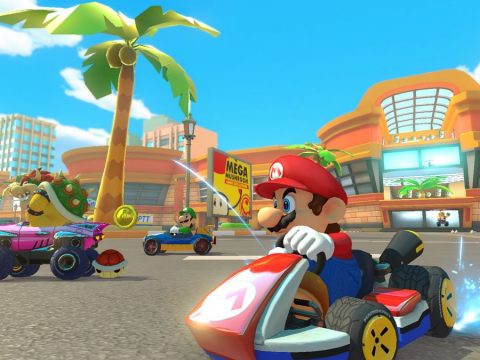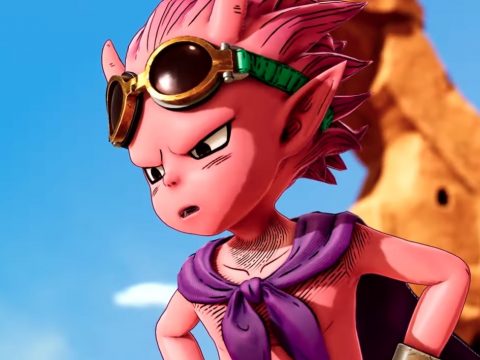
There are a million generic manga out there about school boys who witness extraordinary events and get special powers. Most of them are completely unremarkable, some manage to capture your attention with an exciting introductory saga and then fall apart into episodic conventions once the gears really get going, and a scarce few manage to actually hit you with a unique premise and continue developing that tale evenly over successive volumes. Parasyte is one of the latter.
 There’s a lot to be said for Parasyte‘s premise, so it’s tragic that I can’t elaborate much for fear of spoiling a good deal of the enjoyment of getting into the series. Honestly, you’re best off just going to the store and grabbing Parasyte Volume 1 right now and giving it a read, because it’s freaking awesome. Even just the opening scenes are absolutely hilarious and one wouldn’t experience the full impact having heard about it beforehand. What truly makes it work is the writing… At first glance Parasyte‘s premise may seem familiar, at least for western cinema, but is quite an unusual approach for manga in the grand scheme of things. More importantly, author Hitoshi Iwaaki manages to instill a truly unique angle on it through a genius stroke of situational comedy, characterization, and very clever dialogue. The dynamic between protagonists Shinichi and Migi is neither “hero and sidekick”, nor “buddy cop”, nor even “love-hate”…it truly charts its own territory.
There’s a lot to be said for Parasyte‘s premise, so it’s tragic that I can’t elaborate much for fear of spoiling a good deal of the enjoyment of getting into the series. Honestly, you’re best off just going to the store and grabbing Parasyte Volume 1 right now and giving it a read, because it’s freaking awesome. Even just the opening scenes are absolutely hilarious and one wouldn’t experience the full impact having heard about it beforehand. What truly makes it work is the writing… At first glance Parasyte‘s premise may seem familiar, at least for western cinema, but is quite an unusual approach for manga in the grand scheme of things. More importantly, author Hitoshi Iwaaki manages to instill a truly unique angle on it through a genius stroke of situational comedy, characterization, and very clever dialogue. The dynamic between protagonists Shinichi and Migi is neither “hero and sidekick”, nor “buddy cop”, nor even “love-hate”…it truly charts its own territory.
And while Parasyte indeed has an excellent premise to work with, it doesn’t merely coast on that premise and never lets up developing the story with new twists. The two protagonists are developing, both in quite literal, bizarre, biological manners and in mental and emotional ways throughout the series, preventing it from becoming repetitive or stale. New dynamics with the supporting cast are introduced in each chapter, and while the antagonists may all be characterized as cold, robotic, and devoid of personality, each one has definite quirks and traits. Plot-wise, Iwaaki does not skimp on the details either; Parasyte is not a series where the protagonist succeeds merely because “he tried his best” or because “good triumphs over evil”. Almost every event or phenomenon is explained in a scientific, analytical, or strategic manner. This is not to imply that Parasyte is one of those “plot heavy” conspiracy theory ordeals where you need a flow chart just to keep track of things…it’s simply a smart manga that doesn’t pull plot points out of its ass.
 The series is drawn in about as unique a manner as it’s written. It does not conform to the “spiky-haired ninja” school of shonen, nor the “androgynous extraordinaire”, nor even the “googly-eyed sweat-bead bonanza”. Parasyte‘s visual style is more realistic than most, but not in the fashion-photo realism of Sanctuary or Vagabond…it has a slight touch of quirky cartooniness to it which suits the humor of the story. Villain designs are so bizarre at times as to be outright silly• but not silly in a typical manga way, and they always succeed in being surreal in nature and continually surprising.
The series is drawn in about as unique a manner as it’s written. It does not conform to the “spiky-haired ninja” school of shonen, nor the “androgynous extraordinaire”, nor even the “googly-eyed sweat-bead bonanza”. Parasyte‘s visual style is more realistic than most, but not in the fashion-photo realism of Sanctuary or Vagabond…it has a slight touch of quirky cartooniness to it which suits the humor of the story. Villain designs are so bizarre at times as to be outright silly• but not silly in a typical manga way, and they always succeed in being surreal in nature and continually surprising.
Parasyte is a breath of fresh air in a sea of paint-by-numbers, generic manga. It’s quirky, unique, and smart. It’s got a bizarre and original premise, and comparatively mature characters… at least as manga goes. I can’t think of any of manga I’ve read recently that breaks more from tired conventions, which says a lot considering the series’ typical high school setting. Also, it’s god-damned funny. If you ever tire of being fed the same cliches in series after series and if you’ve got any taste for sci-fi at all, just pick up Parasyte. You won’t regret it.
Publisher: Del Rey / Kodansha
Story and Art: Hitoshi Iwaaki
Rating: 16+







